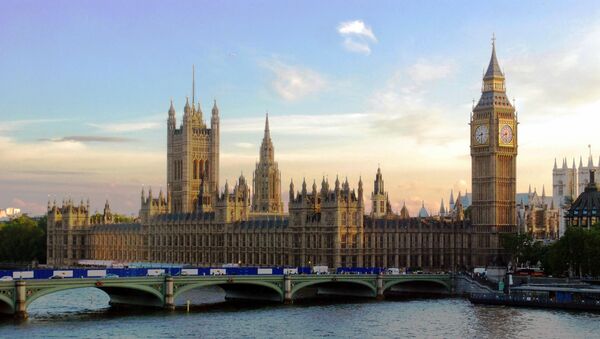The UK government has agreed to include a six month renewal clause into their Coronavirus Bill, following a growing cross-party backlash over the emergency powers they have been demanding to tackle the spread of COVID-19, BBC political correspondent Chris Mason said on Twitter.
Thank you @10DowningStreet for listening to concerns of @HumanRightsCtte & many other MPs re powers 6 months then subject to renewal. I will not be debating amendment @UKParliament today as respecting #SocialDistancing https://t.co/gRT71gsUKf
— Harriet Harman (@HarrietHarman) March 23, 2020
British Prime Minister Boris Johnson had originally hoped to fast-track the emergency law through parliament with little opposition, which would have granted sweeping powers to the state for two years. But Johnson has faced the increasing likelihood of a commons revolt over the Coronavirus Bill as members of his own party signed an amendment introduced by Labour MP Harriet Harman on 19 March 2020. Harman's amendment states that the law will expire, "at the end of the period of 6 months beginning with the date on which it is passed".
The six month expiration date received support from a host of MPs including Tories David Davis and Andrew Mitchell, who were also former cabinet members, as well as Debbie Abrahams of the Scottish Nationalist Party.
— liane gomersall (@ligomersall) March 21, 2020
The parliamentary committee on human rights is also conducting a 5 month-long inquiry into the government's response to COVID-19, including whether measures taken are in line with human rights standards.
Rights groups have warned that what they call "draconian" emergency powers have often been abused by authorities and have become permanent, despite initially being billed as temporary and time limited measures. The abolition of jury trials in northern Ireland and the loss of the unqualified right to remain silent for criminal suspects are examples of previous changes to the law in times of emergency which were said to be time limited but remain in effect to this day.
— Adam Wagner (@AdamWagner1) March 23, 2020
Powers in the Coronavirus Bill include the ability for, “police and immigration officers to detain a person, for a limited period, who is, or may be, infectious and to take them to a suitable place to enable screening and assessment”.
A statement from the Network for Police Monitoring (NETPOL) said:
"In the current crisis, we can look straight away to examples in Italy, where the police have detained and assaulted people out jogging, an activity that is permitted under the country’s lockdown arrangements. In Germany, the police have taken advantage of the coronavirus to use overwhelming force to clear a reception centre for refugees. In France, people have been violently detained for not having the correct documentation. The idea that none of these actions could ever happen in Britain is simply wishful thinking."
NETPOL continued saying that, "the government has not even considered the human rights implications of its decision to severely limit public gatherings between now and 2022".
The first reading took place on 19 March 2020 without any debate as is procedure. The second reading, which will include a debate is scheduled to occur on 23 March 2020.


